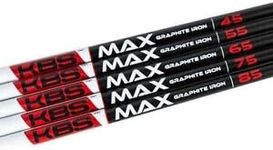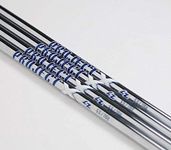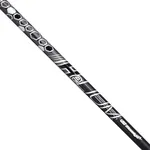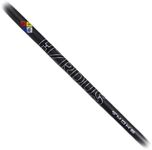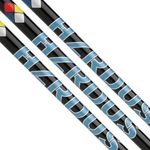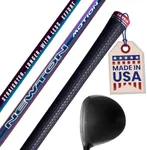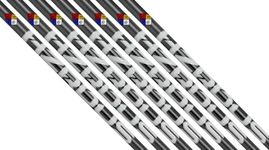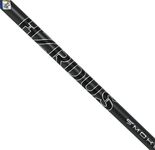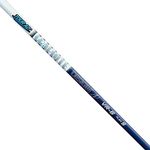Buying Guide for the Best Golf Shafts
Choosing the right golf shaft is crucial for improving your game and ensuring you have the best possible experience on the course. The golf shaft connects the clubhead to the grip and plays a significant role in determining the feel, control, and performance of your golf club. When selecting a golf shaft, it's important to consider various specifications that can affect your swing and overall performance. Understanding these key specs will help you make an informed decision and find the best fit for your game.Shaft MaterialThe material of the golf shaft can significantly impact the feel and performance of your club. The two main types of materials are steel and graphite. Steel shafts are heavier and provide more control and accuracy, making them ideal for players with faster swing speeds. Graphite shafts are lighter and can help increase swing speed, making them suitable for players with slower swing speeds or those looking for more distance. Consider your swing speed and desired feel when choosing between steel and graphite.
Shaft FlexShaft flex refers to the amount of bend or flexibility in the shaft during the swing. It is important because it affects the trajectory, accuracy, and distance of your shots. Common flex options include extra stiff (X), stiff (S), regular (R), senior (A), and ladies (L). Players with faster swing speeds typically benefit from stiffer shafts, while those with slower swing speeds may find more success with more flexible shafts. Assess your swing speed and tempo to determine the appropriate flex for your game.
Shaft LengthThe length of the golf shaft can influence your swing mechanics and overall comfort. Standard shaft lengths vary depending on the type of club (driver, irons, etc.), but custom lengths can be adjusted to fit your height and arm length. A longer shaft can provide more distance but may sacrifice control, while a shorter shaft can offer better accuracy but less distance. Consider your height, arm length, and swing style when determining the right shaft length for you.
Shaft WeightShaft weight can affect the feel of the club and your swing speed. Heavier shafts tend to provide more control and stability, making them suitable for stronger players with faster swing speeds. Lighter shafts can help increase swing speed and are often preferred by players with slower swing speeds or those looking for more distance. Evaluate your strength and swing speed to choose a shaft weight that complements your game.
Kick PointThe kick point, or bend point, is the location on the shaft where it bends the most during the swing. It influences the trajectory of your shots. A high kick point results in a lower ball flight, while a low kick point produces a higher ball flight. Mid kick points offer a balance between the two. Consider your desired ball flight and playing conditions when selecting a shaft with the appropriate kick point.
TorqueTorque refers to the shaft's resistance to twisting during the swing. It is measured in degrees and can affect the feel and accuracy of your shots. Lower torque shafts provide more stability and control, making them suitable for players with faster swing speeds. Higher torque shafts offer a softer feel and can help players with slower swing speeds achieve better distance. Determine your swing speed and desired feel to choose the right torque level for your shaft.
